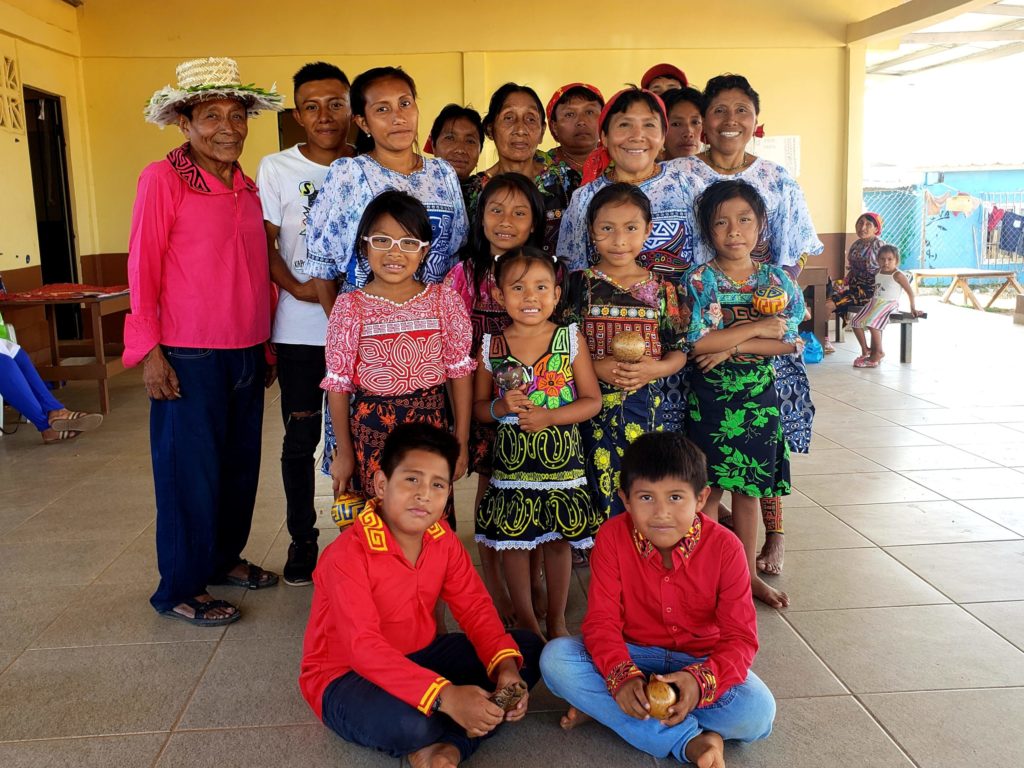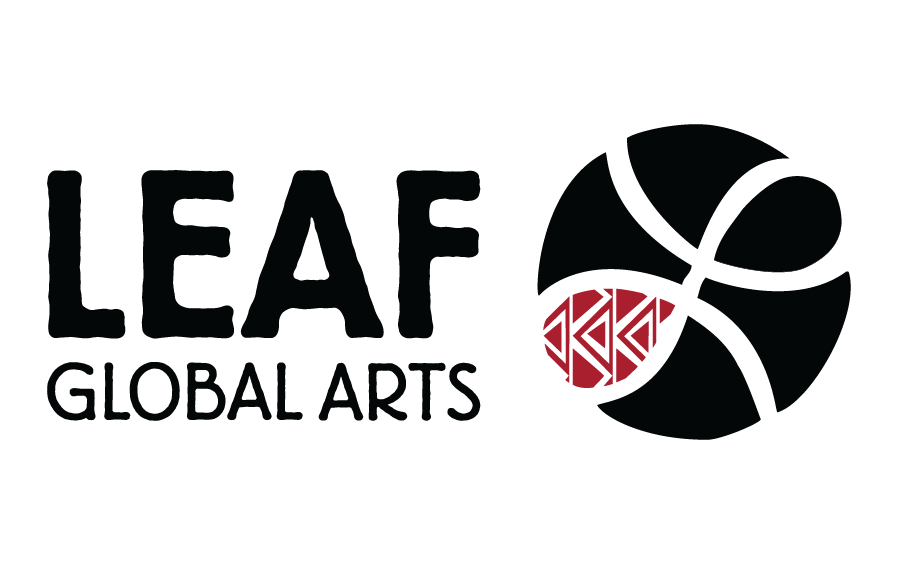by Schree Chavdarov, Global Engagement Director

REPORT DATE: March 2020
LOCATION: Panama City, Panama
CULTURE KEEPER: Yoba Barrantes & Jose Hayans
“I’m inspired by children losing their identity due to living in the (Panama) city. They are disconnected, but it’s not their fault. As soon as they have contact with their traditions, something within them click & they become intrigued by the truth.” -Yoba Barrantes, LEAF Panama Culture Keeper
Overview of the LEAF International Panama Site-Visit:
This program is dedicated to preserving the traditional Guna Yala folk dance styles & instruments. Culture keepers share the history of their ancient mythology through song, dance, & ceremonial practices to be passed down to the next generation. This program supports the paradisiacal Guna Yala comarca, an archipelago in the Caribbean Sea. The beauty of the Guna Yala culture cannot be expressed with words. The culture is deeply rooted in the nature & existence of the Earth.
The importance of this work should not be understated. In a world where indigenous communities are struggling to keep their traditions alive and maintain access to their native lands, providing these communities with solidarity to keep their work thriving is necessary.
“I get happy when I teach because I’m doing what I’ve been taught from my ancestors.” – Jose Hayans, LEAF Panama Culture Keeper
“We want to recover all things from our grandparents so it’s not lost & so, their time was not wasted.” – Jose Hayans, LEAF Panama Culture Keeper
Panama Site-Visit at a Glance: February 25-29th:
• Si GGui Gun Galun (Paradise of Birds) is a Guna Yala band that was established in 1990. This band is composed of men, women & children that share their traditions of dance & ceremonial practices. The band is led by culture keeper & director of more than 30 years, Jose Hayans, who states, “Our way to preserve is through teaching.”
• Jose is 68 years old making him the eldest culture keeper in the LEAF cohort. His wisdom does not go unnoticed & his presence speaks volumes. Jose owns & teaches using more than 26 different Gammus’ (flutes), but expressed there are more than 75 in variety.
• Yoba Barrantes is a cultural manager & producer who creates experiences + festivals that focus on Guna Yala preservation. Yoba coordinates the historic Festival de Arte Dule which gathers indigenous Panamanian artists (writers, painters, poets, musicians, culture keepers) together twice a year. He is in a Guna rock band called La Tribu – a powerful generational rock band that infuses the root of Guna Yala culture throughout their music. As a native Guna person & employee of the congress, Yoba is dedicating his life to preserving the paradisaical Guna Yala.
• The Guna Yala ancestors did not have musical notes, so they imitated the sounds of the animals. They did not have clothes, so they took leaves & feathers from every where to cover their bodies. When the Spanish came, they brought textiles which became the fabrics Guna’s wear today. They also did not have geometrical shapes, so when they saw animal trails (like snails) in the sand, Guna people started to draw the designs which are now seen in all of their clothing.
• One of the biggest holidays is the commemoration of the anniversary of the 1925 Guna Revolution. It marks the day when the Guna rebelled against the Panamanian police occupying the islands and expelled them from the comarca with support of US forces. This day is celebrated on February 25.
• There are 365 Guna Islands, 1 for each day of the year. These islands are one of the most important aspects of Panama. 49 islands are keeping the cultural traditions alive by not accepting tourism – these islands are only accessible via a 4-5-hour boat ride.
How important are the Guna Yala Islands? No one can go to the Guna Yala Islands without getting pre-approved & escorted or going via a tourism group via the state. This is due to high concerns of commercial documentation.
• The government does not provide support for Guna people living in Panama City and they only provide a small amount of support to the islands via tourism income.
• August is the month of Guna Yala culture. During this month, celebrations happen that explore Guna food, costumes, dances, instruments, songs & more.
Fun Fact: In the Guna language, the following letters do not exist: K, P, T, Q, C, CH, F, H, J, LL, Ñ, V, Z. There are 10 consonants & 5 vowels. Here are some substitute letters in the language: K = GG, P = BB, T = DD, Ch = SS
“I wanted to deny my roots because I was bullied in school for being indigenous. When I was 15, my father took me to the Guna Islands and it changed me from that moment. Now, I share my culture through the Dule Festivals.” -Yoba Barrantes, LEAF Panama Culture Keeper
